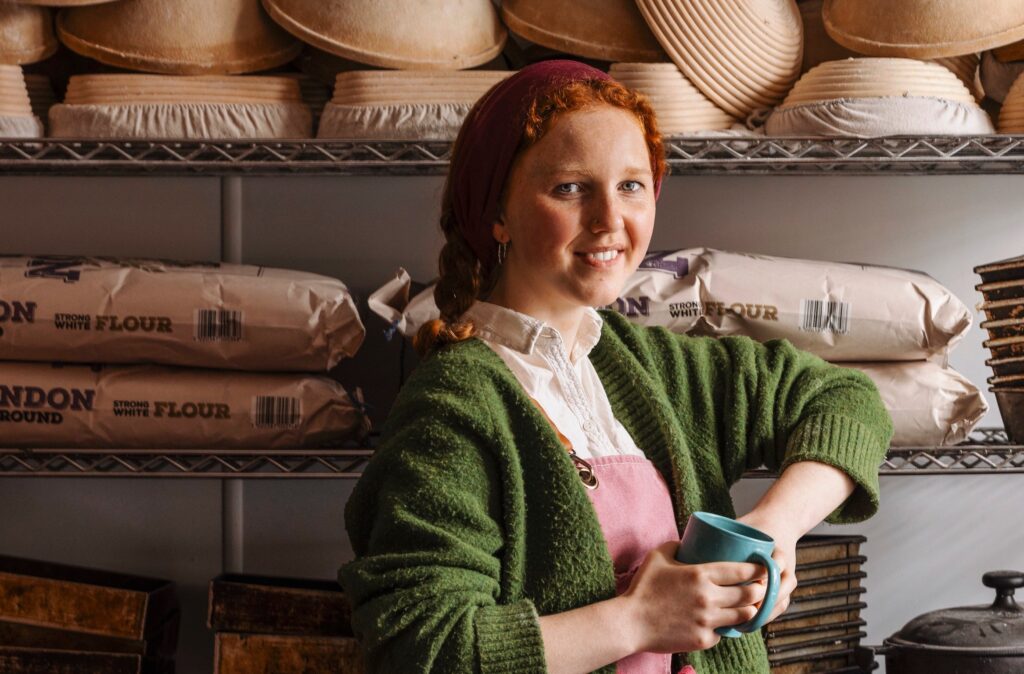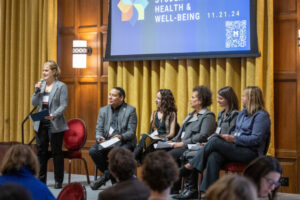Once struggling with severe depression, Kitty Tait discovered an unusual therapy that led her to a brighter path: baking bread. Today, she is determined to simplify the art of baking and highlight the advantages of consuming unprocessed, crusty bread.
As we converse, Tait is busy preparing an assortment of pastries, from pistachio twirls to flaky croissants. Alongside her father, she has quickly ascended the artisan sourdough scene, transforming a home cookery project into a successful bakehouse, the Orange Bakery, garnering a strong social media following in the process.
For Tait, it was the act of baking that helped her recover from her debilitating depression. Her popular creations such as Marmite-laced ‘comfort loaf’ and tiramisu Danish pastries continue to wow customers. Currently, her project, Breaducating Britain, aims to simplify baking and promote the many benefits of quality bread.
“Bread has brought me so much happiness – it’s a joy to make, eat and teach,” shares Tait with enthusiasm. “Despite the way baking shows portray it, bread-making is not rocket science. My wish is for everyone, children and adults alike, to understand that bread is a simple food we can all prepare at home with just flour, yeast, salt, and water.”
Her journey from an outgoing school student to a reserved individual, and then her remarkable transformation into a baking prodigy, began in 2018 when she experienced mental illness at the age of 14. She recounts how she started feeling alienated from her peers, leading to a personal crisis.
“I became a shell, just lying in bed and refusing to leave the house. I almost couldn’t form sentences.”
With the support of therapy, medication, and her parents, Tait began exploring activities that could help her cope with her anxiety attacks and emotional lows. Various activities like gardening, drawing, and knitting were tested, but none seemed to offer lasting relief or any sense of hope for the future.
Her life changed when her father introduced her to a simple, no-knead bread recipe. The act of baking captivated Tait, and she found solace and purpose. “Baking occupied my time and put me in a calm state. It also gave me a sense of purpose when I felt like I was a burden,” she reflects.
As Tait began baking more than her family could consume, she started gifting her loaves to locals in her hometown of Watlington, Oxfordshire. This kind act soon transformed into a paid subscription service, leading her father to quit his job and become her business partner. The duo opened a brick-and-mortar store at Watlington high street in 2019, earning instant success.
Their bakery’s popularity led to the spin-off book, Breadsong, named after the distinctive sound of fresh bread. Despite their success, the pair decided to close the shop after four years, choosing to focus on their true passion rather than scaling up.
Moving back to basics, Tait now sells her baked goods at bi-weekly pop-ups and runs the Orange Bakery from Watlington’s old scout hut, which also serves as the hub for Breaducating Britain. The social enterprise has distributed around 40,000 free bread kits to schools, prisons, and individuals through over 200 different organizations.
Through Breaducating Britain, Tait aims to make quality bread accessible to everyone. “Baking your own bread is empowering on many levels. The process is great for your mental health. And when you bake your own, your physical health benefits too as most of the bread we consume is ultra-processed,” Tait explains.
Despite the recent resurgence in interest for homemade bread, Tait believes that a balance needs to be struck. While artisan sourdough bread is often seen as elitist compared to cheaper, processed supermarket loaves, Tait suggests that we can find a happy medium by empowering individuals to bake their own bread.”
“Maybe it’s bread made by ourselves,” Tait suggests. “I think sometimes we focus too much on scale. If we can empower individuals more, I believe we can have a greater impact in the long term, even if it’s a slower burn.”
She adds, “It costs 12p in electricity to make a loaf, another 25p for ingredients. You don’t have to knead it, you don’t need a lot of time, and you don’t need a bread machine. And bread is so much more than a kitchen staple, at least it can be. Eating fresh bread brings us together and nourishes us in the most comforting way.”
Photography by Laurie Fletcher
Positive News is a not-for-profit media organisation that relies on the financial support of its readers to bring more people a balanced and uplifting view of the world. We encourage our readers to make a difference by contributing regularly or making a one-time donation. Join our community today, and together, we’ll change the news for the better.





